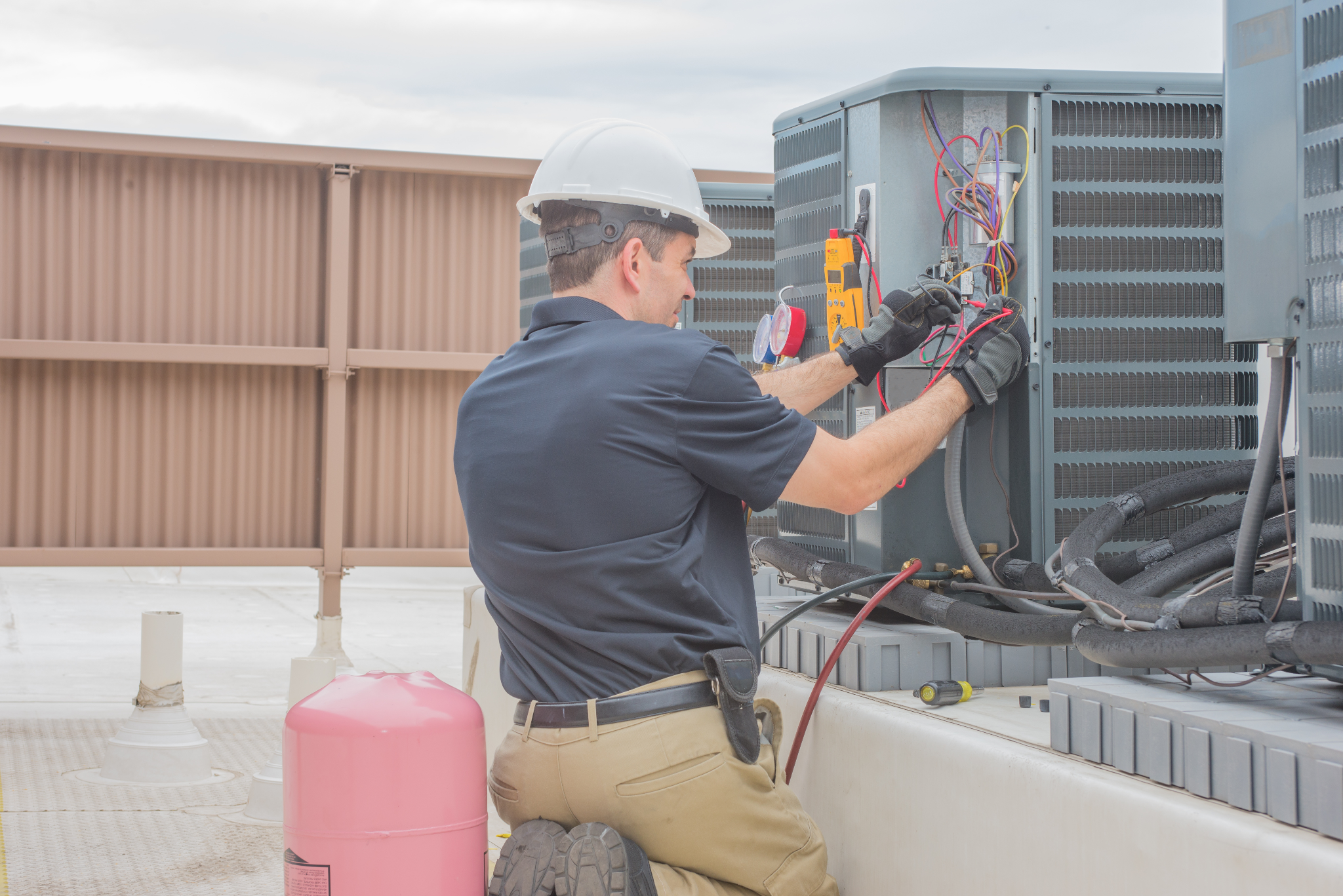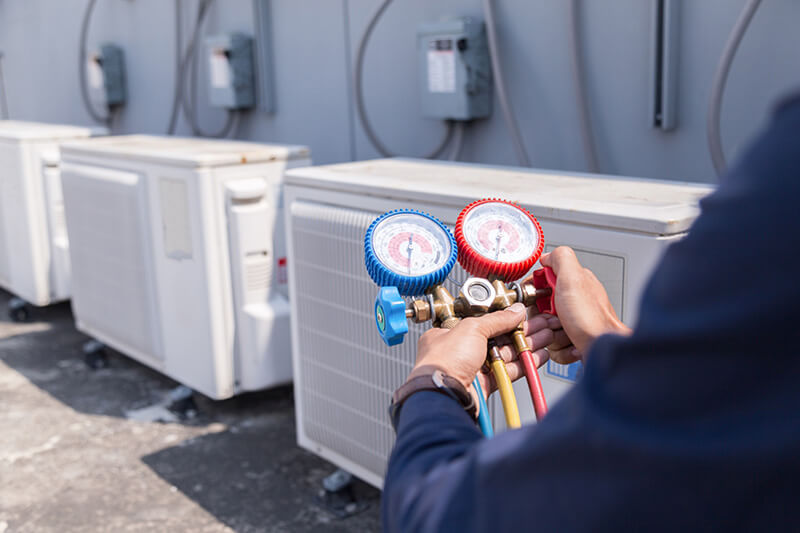Everything You Should Know Before Installing ductless mini splits
Everything You Should Know Before Installing ductless mini splits
Blog Article
Selecting Between a Heat Pump and Furnace: Trick Factors To Consider for Your Cooling And Heating Requirements
When reviewing heating choices for cooling and heating requires, the decision in between a heat pump and a heating system can be complicated. Each system provides distinct advantages customized to certain climates and energy performance goals. Comprehending these distinctions is important for making an enlightened option. Key aspects such as installment expenses and ecological impact better make complex the choice procedure. Which option truly aligns with one's convenience and sustainability preferences? The following areas will explore these factors to consider thoroughly.
Understanding Warm Pumps: How They Function and Their Benefits
While several property owners think about different heating choices, understanding how heatpump function and their benefits can significantly influence their choice. Warm pumps run by moving heat rather than producing it. In the winter, they draw out heat from the outside air or ground and move it inside, while in the summer season, they reverse this process, cooling down the home by expelling warm outside. This twin functionality makes them functional for year-round climate control.One of the main advantages of heatpump is their energy performance. They use considerably less electrical energy contrasted to standard heating unit, potentially leading to reduced energy expenses (furnace replacement). Additionally, heatpump have a smaller carbon footprint, making them an environmentally pleasant option. They likewise require much less upkeep than traditional systems, contributing to long-term cost financial savings. Overall, recognizing the auto mechanics and benefits of heatpump can aid homeowners make educated decisions concerning their heating and cooling demands
Checking Out Heaters: Types, Procedure, and Advantages
Heaters can be found in numerous kinds, including gas, electric, and oil designs, each with unique functional systems. Understanding these distinctions is essential, as they influence effectiveness and heating performance. Additionally, heating systems supply various benefits, such as constant warmth outcome and reliability in chillier environments.
Kinds of Heaters
Heater can vary substantially in design and operation, with furnaces being a preferred option amongst homeowners. There are several types of heaters, each utilizing different fuel sources and technologies. Gas furnaces prevail, leveraging natural gas to create warmth efficiently. Electric heating systems, on the various other hand, utilize electrical resistance to produce heat, commonly preferred for their uncomplicated installment. Oil heaters, while less usual, work in locations with minimal gas accessibility (ductless mini splits). Furthermore, condensing heating systems take full advantage of energy efficiency by reusing and catching exhaust gases. Each kind runs via a system of warm exchangers and ductwork to distribute warm air throughout a home. Understanding the distinctions in between these furnace types is vital for notified HVAC choices
Advantages of Heaters
For home owners looking for reputable heat during cold months, the advantages of furnaces are significant. Heaters provide constant heating, ensuring even temperatures throughout the home. They are specifically effective in extreme chilly, typically outshining heatpump in freezing problems. Numerous kinds, including gas, electrical, and oil heaters, supply adaptability to satisfy diverse demands and preferences.Furnaces likewise tend to have lower first setup expenses compared to heatpump, making them a more available alternative for several. Their durable design adds to a longer life expectancy, with lots of devices lasting over 15 years with appropriate upkeep. Furthermore, contemporary heating systems are commonly furnished with advanced modern technology for boosted effectiveness, which can result in decreased energy expenses. On the whole, heaters stay a trustworthy choice for efficient home heating.

Power Performance: Contrasting Warmth Pumps and Furnaces
When contrasting power performance in between heatpump and heating systems, the Seasonal Energy Performance Proportion (SEER) plays an essential function in identifying efficiency. Furthermore, a functional price evaluation exposes the long-term economic implications of each system. Recognizing these elements can assist homeowners in making notified choices regarding their heating remedies.
Seasonal Energy Efficiency Ratio
Power efficiency plays an important function in the decision-making process between warm pumps and heaters, particularly when taking into consideration the Seasonal Power Effectiveness Proportion (SEER) This statistics actions the cooling efficiency of heatpump over an entire air conditioning season, providing a standardized means to review performance. Greater SEER scores show higher energy efficiency, equating to lower power usage and reduced energy expenses. In contrast, heating systems are usually analyzed making use of the Yearly Gas Usage Performance (AFUE) score, which shows heating performance. When contrasting these two systems, property owners ought to focus on SEER scores for heatpump, as they straight influence overall energy cost savings and environmental sustainability. A comprehensive understanding of SEER can significantly affect the long-term fulfillment and cost-effectiveness of the selected a/c solution.
Functional Cost Evaluation
Understanding the operational prices linked with heat pumps and heating systems is vital for property owners assessing their alternatives. Heat pumps typically provide higher power effectiveness, transforming electric power right into warmth with marginal waste. This leads to lower month-to-month energy costs, especially in modest climates. On the other hand, conventional heaters, particularly gas versions, may have lower upfront prices however can sustain greater functional expenditures over time because of sustain prices and efficiency ratings.Moreover, heat pumps can function as both heating and cooling systems, potentially lowering the requirement for separate a/c units. While initial financial investments for warm pumps may be greater, their lasting financial savings in energy effectiveness can make them an extra economical option for many houses. Cautious evaluation of local energy prices is necessary to determine the finest option.
Setup Expenses: What to Anticipate for Each Heating Unit
Setup expenses for home heating systems can differ considerably in between warm pumps and heaters, affecting house owners' decisions. Warmth pumps usually have higher in advance setup expenses, commonly ranging from $3,500 to $8,000, relying on the system size and intricacy of installation. This consists of the outdoor unit, interior handling system, and needed ductwork modifications. Conversely, heaters tend to have reduced first prices, balancing in between $2,500 and $6,000, which can be appealing for budget-conscious homeowners. Nevertheless, setup expenses can boost if comprehensive ductwork is required.Moreover, the option of gas type for heating systems-- gas, propane, or electric-- can additionally influence setup expenses. While heatpump use power effectiveness, their preliminary investment might discourage some buyers. Inevitably, reviewing installment costs together with long-lasting financial savings and performance will certainly assist property owners in making informed decisions concerning their home heating systems.
Environment Factors To Consider: Which System Does Much Better in Your Location
Just how do climate problems influence the performance of furnace? The performance of heatpump and heating systems can vary significantly depending on the neighborhood environment. In modest environments, warmth pumps excel by effectively transferring heat from the outdoors air, making them an energy-saving option. However, their efficiency reduces in very cool temperatures, where they may have a hard time to extract enough warm. Alternatively, heaters, specifically gas models, give consistent and reputable warm no matter outside problems, making them preferable in chillier regions.In areas that experience milder wintertimes, heatpump can operate effectively year-round, supplying both cooling and heating. On the other hand, regions with extreme winters commonly benefit from the effectiveness of furnaces. Ultimately, understanding the regional environment is essential when choosing in between a warm pump and a furnace, as it straight affects their functional efficiency and general performance.
Maintenance Requirements: Long-Term Take Care Of Warmth Pumps vs. Furnaces
While both heatpump and furnaces call for routine upkeep to guarantee peak performance, their specific requirements and care regimens vary substantially. Heaters normally require less constant interest, with yearly assessments being enough to look for gas leaks, clean filters, and analyze total capability. Their simpler style commonly enables simple repairs.In contrast, heatpump necessitate biannual maintenance because of their twin role in cooling and heating. This includes cleaning coils, examining refrigerant degrees, and making sure that both the outdoor and interior devices function at their finest. Additionally, warm pump upkeep commonly includes more elaborate elements, making expert maintenance essential.Neglecting upkeep can cause lessened efficiency and enhanced power prices for both systems. Inevitably, property owners need to consider these long-lasting care needs when picking in between a heatpump and a furnace, as proactive upkeep can extend the life-span and performance of either system significantly.
Ecological Impact: Selecting a Lasting Heating Choice
The ecological influence of heater is a vital evaluation for homeowners visit our website seeking sustainable alternatives. Warm pumps are normally a lot more energy-efficient than traditional heating systems, as they move warmth as opposed to create it, considerably decreasing carbon exhausts. By utilizing sustainable power resources, such as air-source or geothermal heatpump, house owners can additionally reduce their environmental footprint.On the various other hand, natural gas heaters give off greenhouse gases and add to air pollution, though they commonly offer greater warm result. Developments in technology have led to the growth of high-efficiency heating systems that lessen emissions.Ultimately, selecting a heating informative post system entails evaluating efficiency against environmental effect. Home owners are urged to assess neighborhood power sources and rewards for eco-friendly systems, ensuring an option that straightens with both individual comfort and ecological responsibility. The choice affects not only instant convenience but likewise long-lasting sustainability and environmental health.
Often Asked Questions
For How Long Do Heat Pumps and Furnaces Normally Last?
The life expectancy of heat pumps usually varies from 15 to 20 years, while furnaces can last between 15 to three decades. Regular maintenance considerably influences their longevity and performance in giving home heating options.
Can I Use a Warm Pump in Very Cold Climates?
Heatpump can run in extremely cold climates, yet their effectiveness reduces as temperatures decrease. In such conditions, additional heating resources might be essential to keep comfy interior temperature levels and ensure peak efficiency.

What Is the Noise Level of Heat Pumps Versus Furnaces?
The sound degrees of heatpump and furnaces differ substantially. Generally, warm pumps run even more silently than conventional furnaces, making them more effective for those conscious appear, while heaters may produce louder operational noises throughout heating cycles.
Are Heat Pumps Suitable for Both Heating & Cooling?
Heatpump are indeed appropriate for both cooling and heating (furnace replacement). They function by transferring warmth, offering efficient temperature level control year-round, making them a functional option for house owners seeking an all-in-one HVAC solution
What Size Home Heating System Do I Need for My Home?
Establishing the suitable dimension heating unit for a home needs evaluating elements such as square footage, check these guys out insulation high quality, neighborhood environment, and the home's design. Consulting an expert can assure a precise analysis and suitable comfort. Heat pumps commonly supply higher energy performance, converting electric energy right into warm with marginal waste. In moderate climates, warm pumps stand out by effectively moving heat from the outside air, making them an energy-saving option. On the other hand, heating systems, particularly gas designs, supply reputable and regular warmth regardless of outside conditions, making them better in cooler regions.In locations that experience milder wintertimes, warm pumps can operate properly year-round, giving both heating and air conditioning. Heat pumps are normally extra energy-efficient than standard heaters, as they transfer warm rather than create it, considerably lowering carbon discharges. By making use of eco-friendly power resources, such as air-source or geothermal heat pumps, homeowners can further minimize their ecological footprint.On the various other hand, all-natural gas furnaces give off greenhouse gases and add to air contamination, though they typically give greater heat output.
Report this page